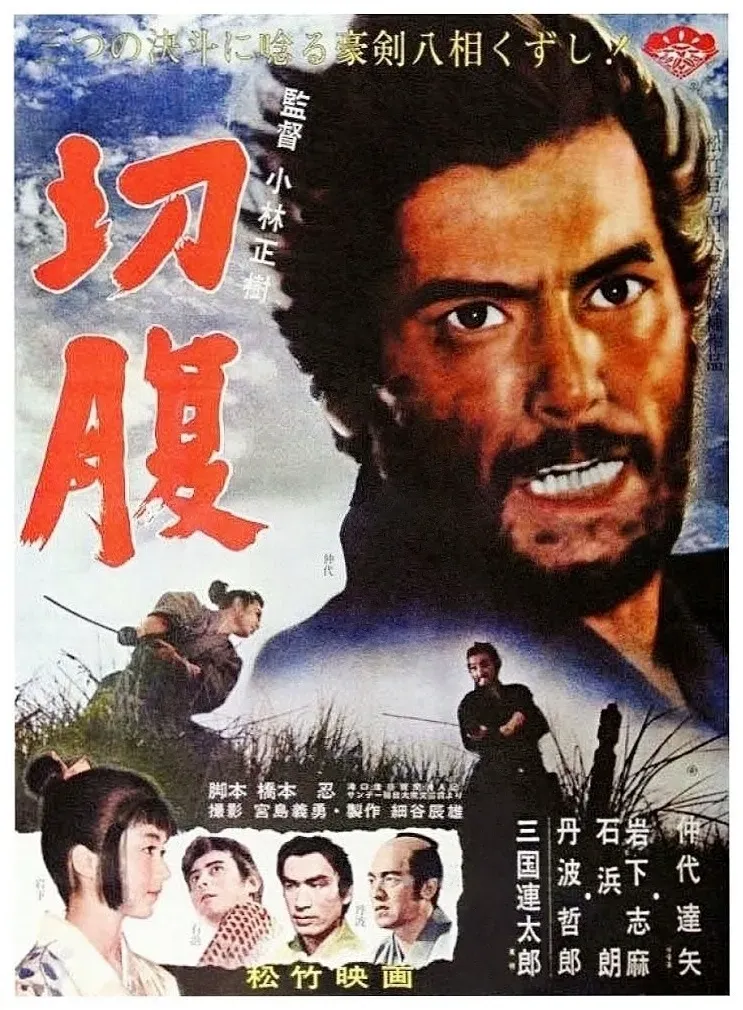Hara-Kiri (1962)

Harakiri (1962) is a spare, devastating period drama about honor, hypocrisy and revenge set in early-17th-century Japan. The story opens when an elderly ronin, Hanshiro Tsugumo (Tatsuya Nakadai), arrives at the ceremonial courtyard of a powerful clan and requests permission to commit seppuku. What begins as a formal ritual soon becomes a tense, unraveling mystery: the clan recounts the recent, gruesome fate of another ronin who made the same request, and through flashbacks the full, tragic connection between the two men is revealed. Tsugumo’s calm exterior conceals a calculated plan that forces the house’s cruelty and the contradictions of the samurai code into merciless relief. Watching Harakiri is an intense, slow-burning experience. The film alternates formal, restrained palace scenes with intimate, heartbreaking flashbacks; the staging and black‑and‑white cinematography emphasize ritual, empty ceremony and human suffering. Expect long, controlled takes, sharply composed frames, and an unflinching depiction of humiliation and brutality that builds to a moral and emotional climax. Performances—especially Nakadai’s—are wrenching and controlled, conveying dignity, rage and grief with minimal flourish. Beyond its plot of deception and retribution, Harakiri works as a powerful social critique: it exposes the hypocrisy of feudal honor codes that exalt ritual over compassion and punish the powerless. Viewers will likely come away shaken and outraged, moved by the personal tragedies at the film’s center and impressed by the director’s austere craftsmanship. This is a demanding, unforgettable film for those who appreciate character-driven drama, moral complexity and classic Japanese cinema.
Actors: Tatsuya Nakadai, Akira Ishihama, Shima Iwashita
Director: Masaki Kobayashi
Runtime: 133 min
Genres: Action, Drama, Mystery
85
/100
8.6
/10
![]() 8.6
/10
8.6
/10